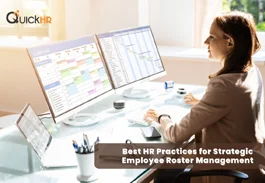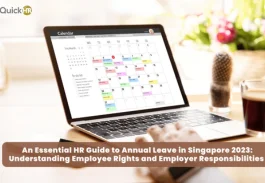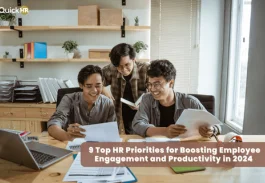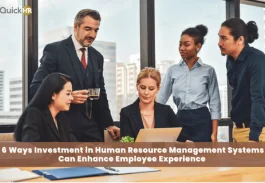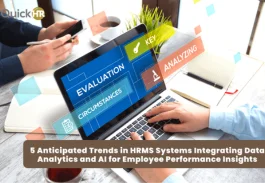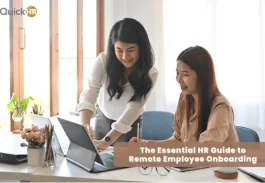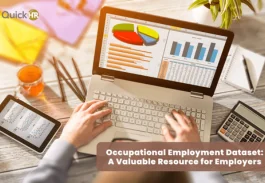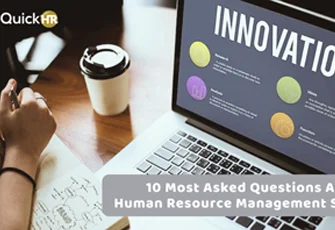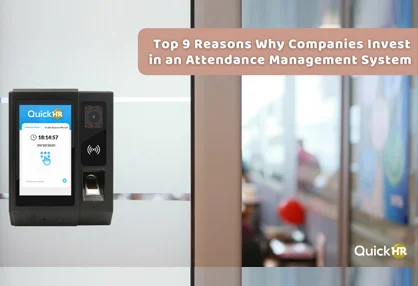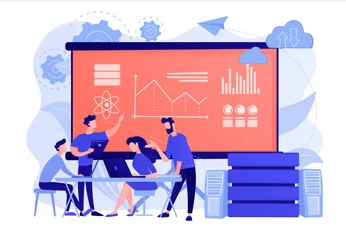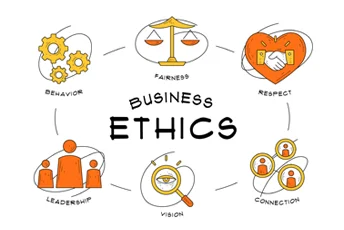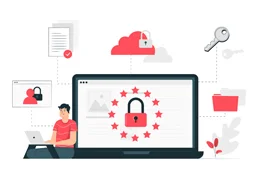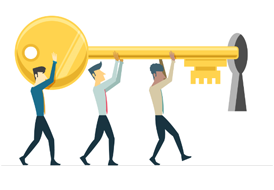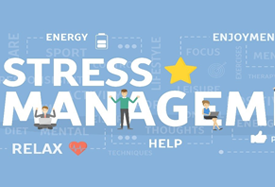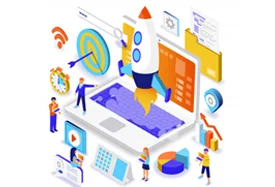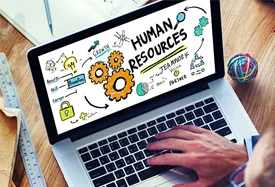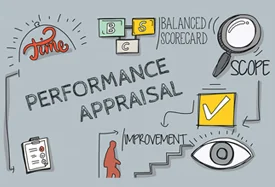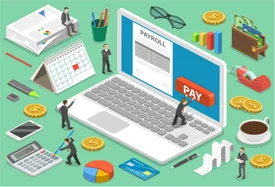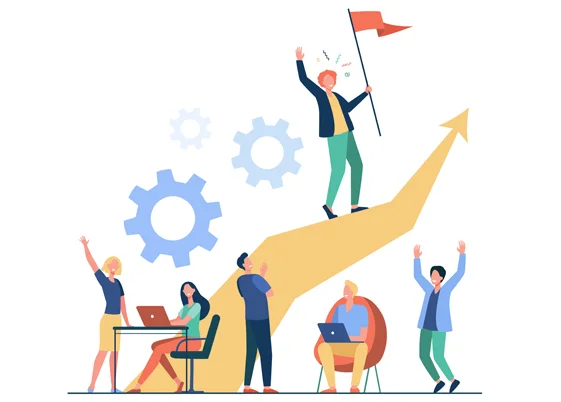
The Role of HR in Leadership
Posted on 19 January 2021 in Business | Gabriel Chua
Who is a Leader?
If you were asked to name a great leader who would you think of? Some would perhaps name political, military or religious leaders such as George Washington, Alexander the Great or John Paul II. While these leaders no doubt wielded great power, we would like to challenge the notion that a leader can only develop when placed in a formal position of power. We believe that in the modern workplace, given the right opportunities,
anyone can be a leader, regardless of their status in their organisation's hierarchy.
So how then, can the Human Resources (HR) department empower ordinary employees to evolve into leaders amongst their peers and even competitors? Let us learn from three extraordinary individuals who made the tough calls and learn what HR can do to emulate their success.
The Tough Decisions
Albert Einstein: Resilience in Failure
Having the determination to power through failure can help set individuals a cut above the rest.
Background: Perhaps the greatest scientist of all time, Albert Einstein was notorious in his early years for having a rebellious nature. As a result of his disposition, he was not only expelled from school, but had his application into the Zurich Polytechnic School rejected. However, this did not stop Einstein from pursuing his interests further, going through the nitty-gritty to develop his theory of relativity, establishing him as a figure of authority in the world of Physics, which ultimately culminated in him winning the Nobel Peace Prize for the subject in 1921.
Lesson Learnt: To quote from the man himself, "Success is failure in progress". Indeed, Einstein’s refusal to give in to rejection and steady determination enabled him to establish many theories which continue to lead the way for modern-day physics.
To model Einstein’s resilient attitude, HR departments should create an environment where smart

experimentation is allowed, where employees are not punished for failing but instead, are encouraged to learn from their mistakes. Over time, employees will develop more effective ways of meeting their goals, and grow their skills. One way this can be done is through an effective feedback system between manager, HR and employee, such as a HRMS system encompassing a multi-formatted feedback and appraisal system.
Ander Herrera: Ownership of Your Goals
Acting against your superior’s instructions is not always a bad thing.
Background: In the final of the 2017 Europa League, Manchester United led Ajax by just a single goal. During a corner kick for Manchester United, Henrikh Mkhitaryan was assigned to protect the defence, while teammate Ander Herrera would remain in the opponent’s penalty box to cause them defence problems. However, realising that his teammate had already been issued a yellow card, Herrera, against his manager, Jose Mourinho’s instructions, decided to swap roles with Mkhitaryan just in case he was issued a second yellow card which would have gotten him sent off. This decision to swap roles ultimately led to Manchester United’s scoring a second goal, clinching the title for the club.

Lesson Learnt: Though not the designated captain of the team, Herrera was able to step up and make a rapid decision. Against his manager’s instructions, Herrera made a quick assessment of the situation and decided to take the responsibility and make the call of how the team was to be organised. Herrera, on that day, displayed an aptitude for situational awareness, and was not afraid to bear the brunt of a potential telling off from his boss, which, ultimately, proved to be the winning shot.
Looking at this, HR can learn the importance of creating a culture where employees are encouraged to take ownership of their work, with open communication (not just blind agreement), with their managers. Employees who have developed an ownership mentality feel empowered in their position to make decisions within their sphere of influence. This requires the manager or team lead to delegate effectively, avoid micromanaging, and inject pride into every person in the organisation. In the long run, an ownership culture would entail many benefits for their respective companies such as improved employee engagement and productivity.
Oprah Winfrey: Taking a Stand
Working with integrity can help establish people as trustworthy and honourable individuals.
Background: Undoubtedly one of the greatest television hosts in all of history, Oprah Winfrey transcended the industry in a period where ratings were dominated by personalities that would base their programmes off the most sensational and even exploitive topics present at the time. Instead of riding on this trend, Oprah was not afraid to go against the norm and chose to speak about issues that were more thought-provoking and social in nature. While her initial ratings were lower than hoped, Oprah refused to throw in the towel and stuck to her approach, eventually not only winning back high ratings, but clinching many awards during the course of her shows, which ran for a whopping 25 seasons.
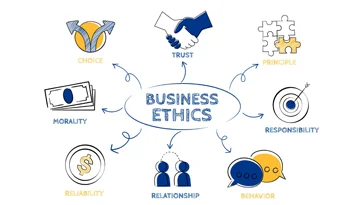
Lesson Learnt: There are many takeaways that can be made from looking at the case of Oprah. But perhaps the biggest one would be maintaining your integrity, and not being swayed by the prevailing culture. Such an approach ultimately elevated Oprah to celebrity status, cementing her place as a well-respected and reliable leader in the talk-show business.
HR can play an important role as a gatekeeper of a company’s culture. HR Professionals need to remain neutral in all situations in order to avoid bias or prejudice that could cloud their judgement. Often, managers are under great pressure to produce results, which may drive them to resort to underhanded measures and pressure their team members to do the same. By intervening and correcting negative behaviour, the HR department protects employees from fear of an abusive manager. In addition, this builds a company culture focusing on eustress, rather than negative stress. With a culture based around mutual respect, HR can establish a positive reputation of an entire organisation.
The Bottom Line
As disruptive technologies emerge, working professionals are now presented with both the opportunity and the challenge to grow into new roles. As demonstrated by the examples above, HR has a crucial role to play in this process: from creating a culture of learning and experimentation, ownership and communication, to gatekeeping negative behaviours.
To support your HR team, why not try out QuickHR! QuickHR is an award-winning HRMS software designed to make human resources more human, so you can focus on the strategic transformation of your workplace. Optimise your HR processes with our multi-faceted modules such as our Payroll, Performance Appraisal and Applicant Tracking Systems.
Once again, we hope that you’ve enjoyed a good read. And remember, Think Now, Think Far, Think QuickHR.
* Get in touch with us at https://quickhr.co/ to find out more about our state-of-the-art HRMS solution!
Enjoying this article? Subscribe now and never miss out on future content.

